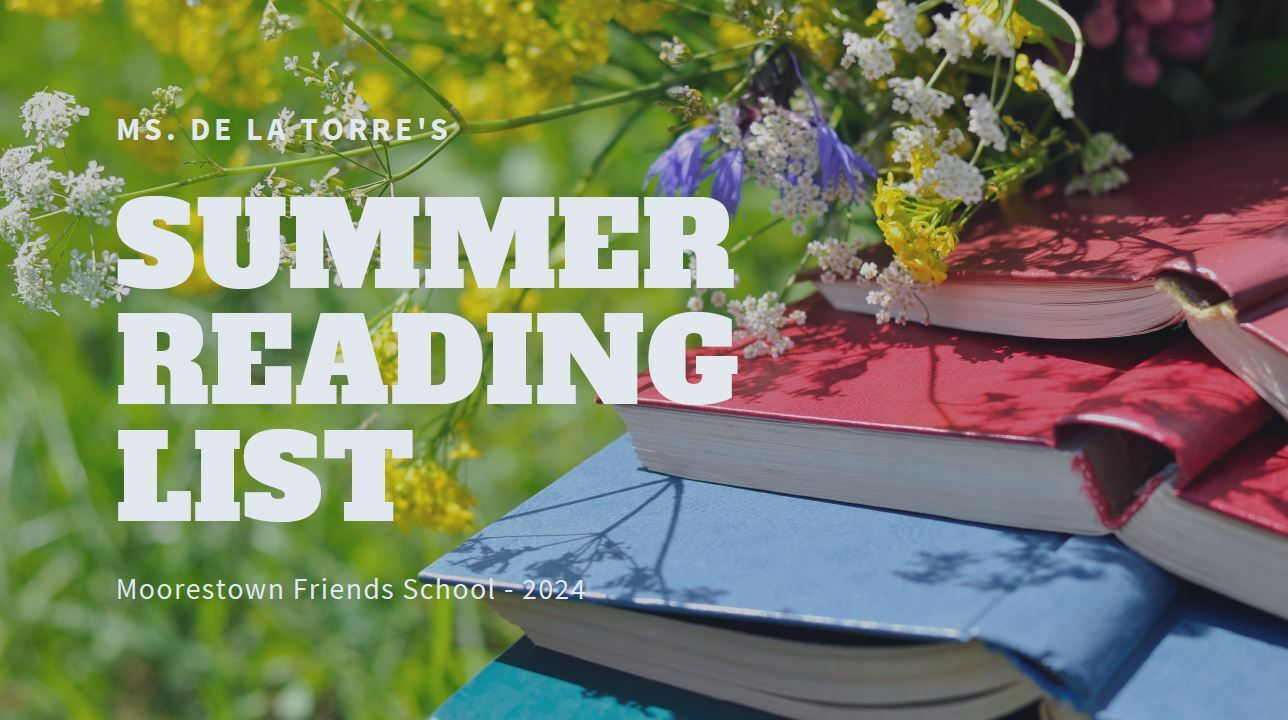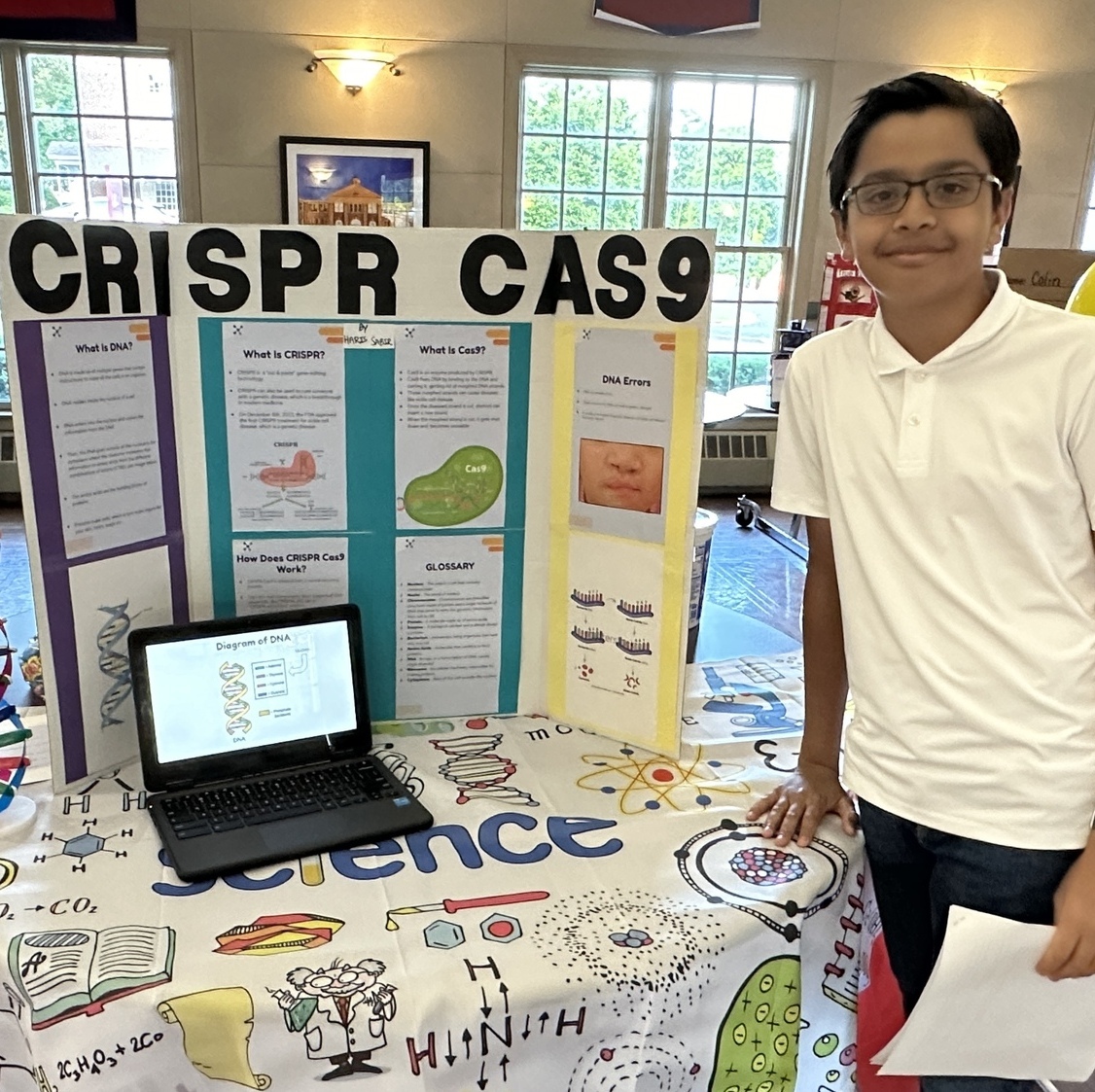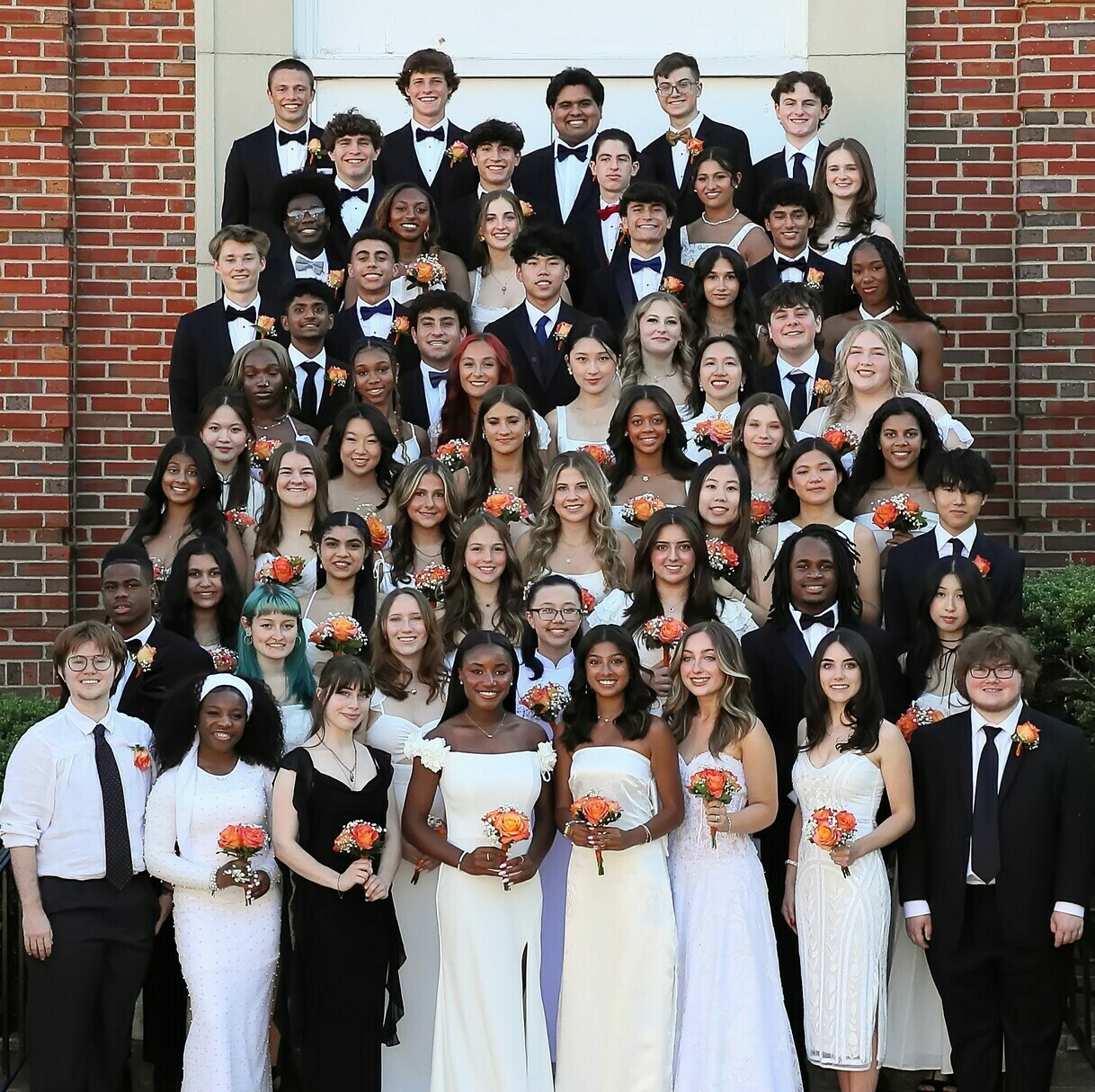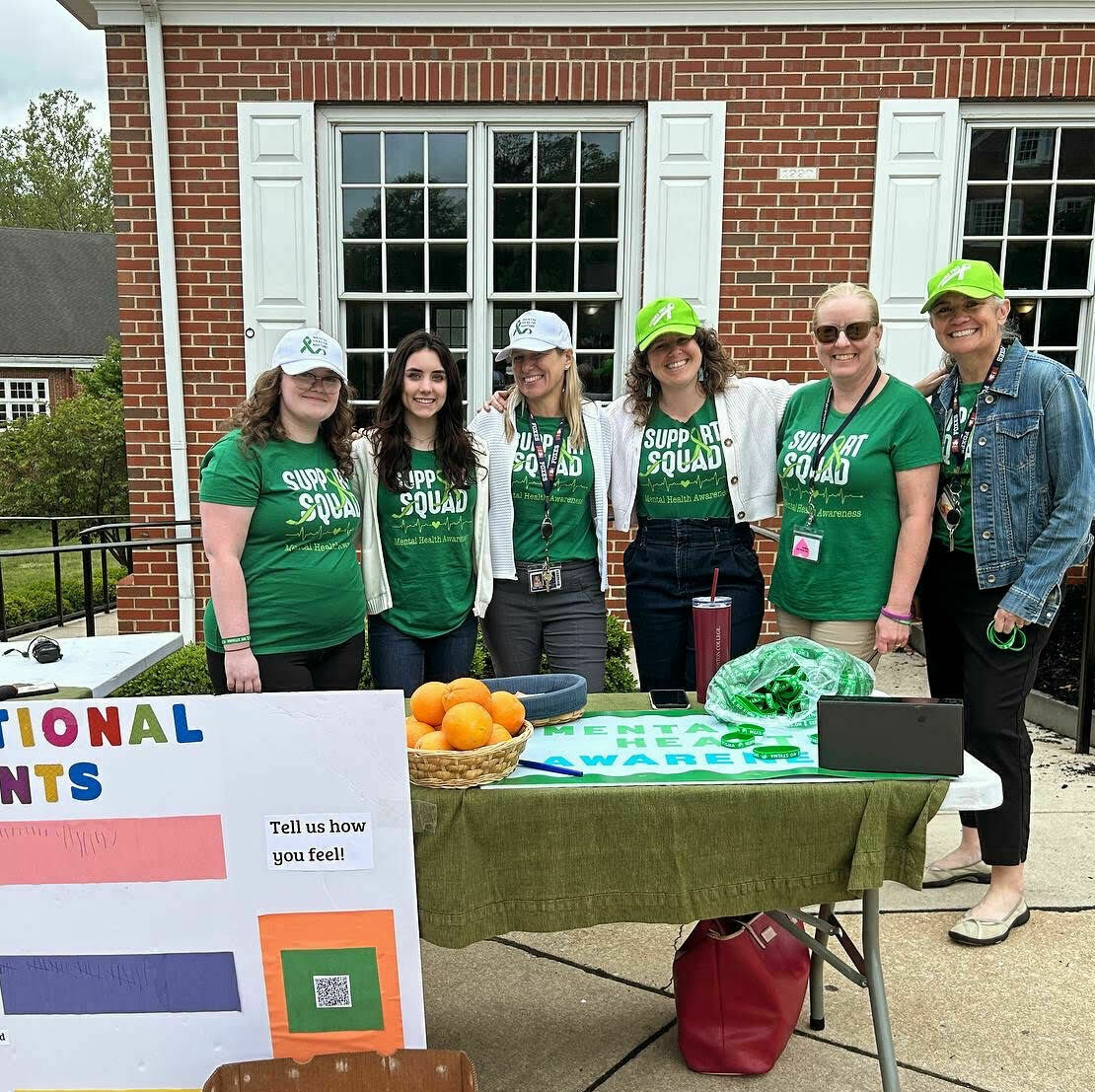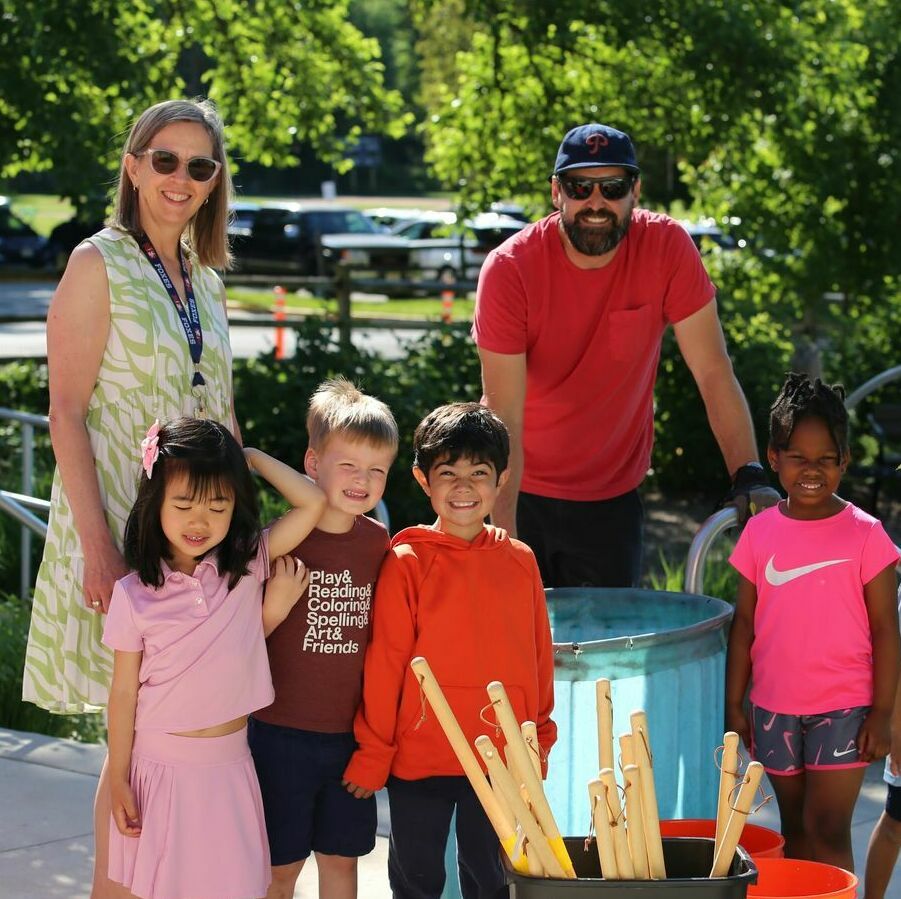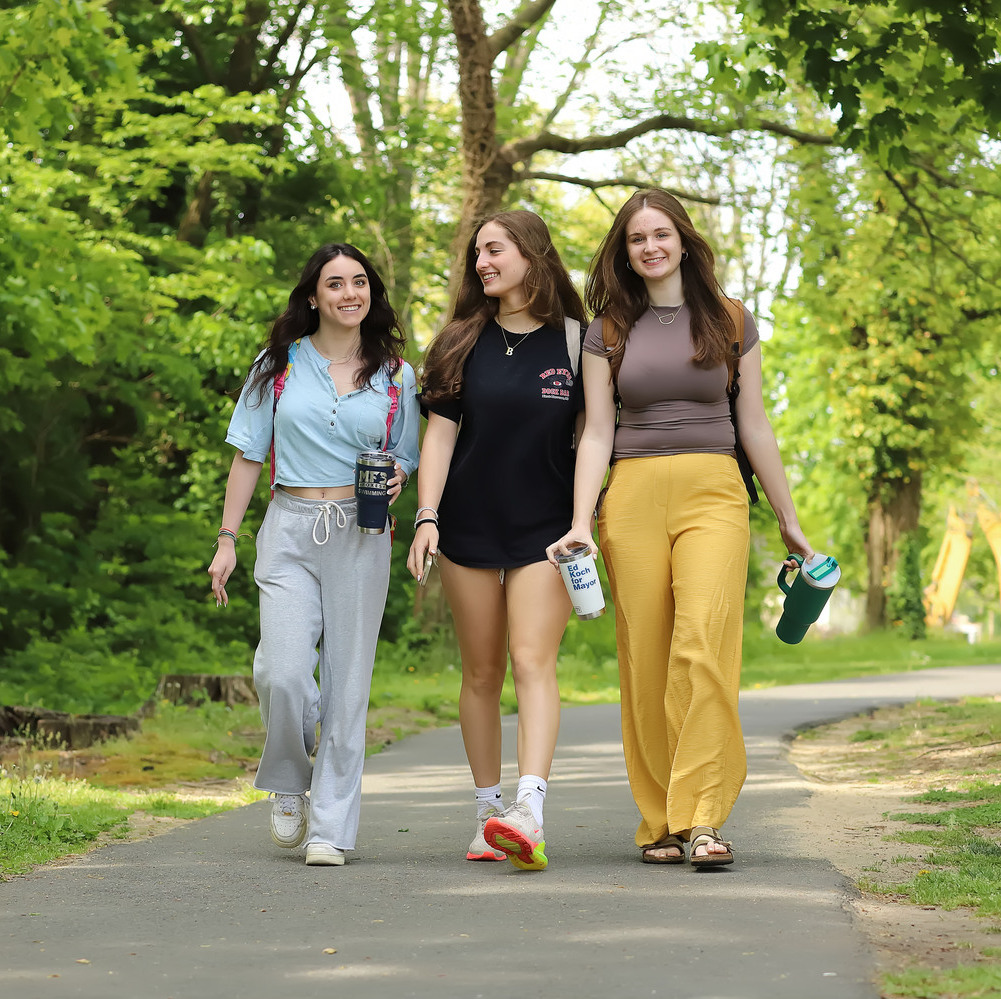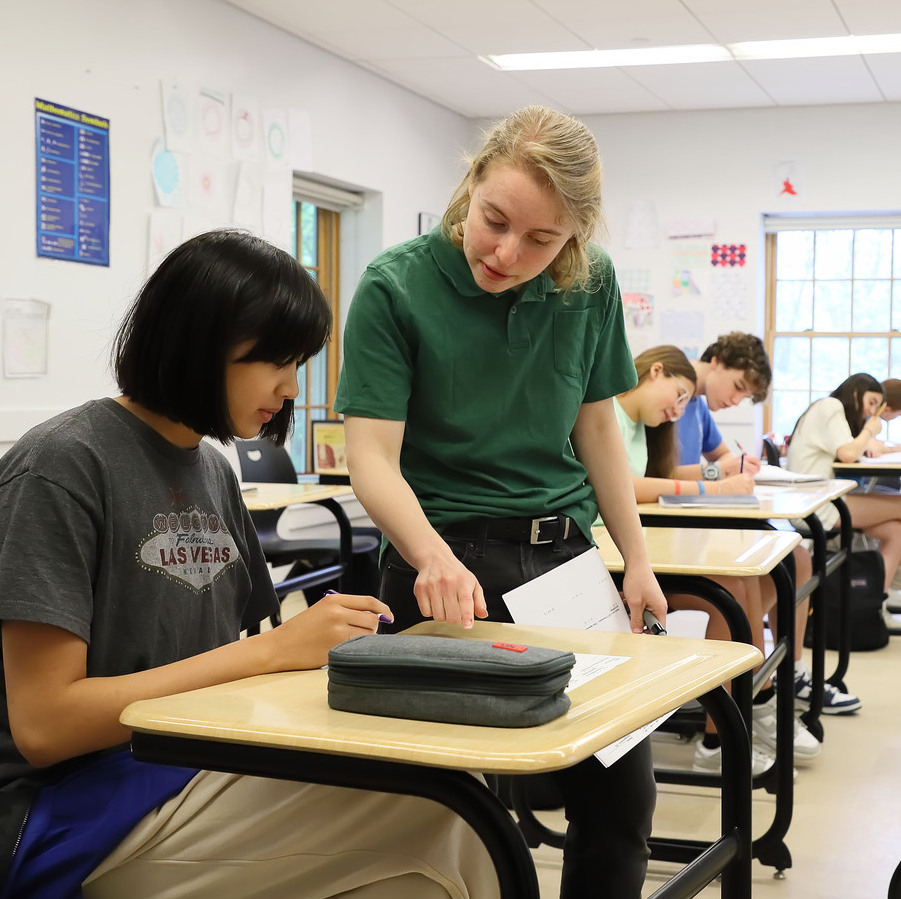The Head's Perspective
Join me for updates from Moorestown Friends School through The Head's Perspective. I hope to connect you with the exciting learning that is taking place every day on our campus, as well as reflections on leadership and education.
Strategic Plan Update: Year Two
This issue of The Head’s Perspective provides an update on Year Two of our Strategic Plan: A Compass for Our Future. As we wrapped up the school year, there was a lot of excitement on campus. From final Meetings for Worship, to off-campus field trips, to Commencement, there was no shortage of special moments to celebrate. As I take a step back from the day-to-day of school, I’m proud of the progress Moorestown Friends School has made toward its strategic priorities for the future. Below are a few updates from Year Two. Although this is not an exhaustive list of the wonderful work our faculty and staff have done this year, I hope it gives you a flavor for what we are working on in order to ensure MFS continues to provide an excellent education that is grounded in our Quaker mission and values.
Teaching & Learning
Our strategic focus on Teaching and Learning is centered on supporting teachers to provide the best learning experience possible for our students. Dr. Jackie Dawson joined us this year as our first-ever Director of Teaching and Learning. In this inaugural role, Dr. Jackie oversees the academic experience in Preschool - Grade 12 with an eye towards scope and sequence, clear pathways for academic growth and advancement, and greater support of curriculum, pedagogy, and teacher professional development. This year, she worked collaboratively with faculty to design a pilot of a new faculty growth and evaluation program that encourages faculty inquiry, peer observations, and reflective feedback. In grades 6-12, we rolled out student feedback surveys for all major classes, so that student voice is also a part of shaping the classroom experience. We will continue to refine the program and extend its reach to more faculty in the coming year.
Our Upper School teachers have spent extensive time this year looking at grading and assessment, in an effort to unify how we approach grading and to invite deeper student reflection on learning. Middle School faculty have been engaged in creating a consistent approach to student feedback to promote development of the whole child. And Lower School faculty have been reviewing our early childhood literacy program, integrating phonics and whole language learning into a balanced approach to reading instruction, in alignment with current research on literacy education. In addition, our entire faculty participated in professional development this year on neurodiversity, so we can effectively serve all of our students' needs so they can excel to their fullest potential.
We look forward to continuing to update you on our work in Teaching and Learning in the coming year and making our academic programs visible to families. Our commitment to academic excellence remains our top priority as we prepare students for life in college and beyond.
Peer School Visits
This year, with support from generous donors, MFS was able to send out two teams of teachers to conduct visits to a total of 14 schools and three college campuses to explore best practices in two key areas of our Strategic Plan - Global Engagement and Student Wellness. The goal of these visits was to learn from other institutions about how they launched their respective initiatives and how the work has led to strong academic outcomes for students over a number of years.
The Global Engagement Team examined approaches to teaching about global issues from Preschool through Grade 12. These school models went beyond travel experiences alone to robust course offerings, signature programs in each division, and certificate programs at the high school level that allowed students to deeply engage with global content and apply their learning to real-world contexts. The first step identified by every school was to clarify the global competencies we want to see from our students. What knowledge, skills, and dispositions will allow young people to investigate the world, consider different perspectives on global issues, communicate ideas to diverse audiences, and take action on issues of global significance? This summer, MFS is forming a Global Education Action Committee that is charged with developing an MFS framework for global engagement. This guiding document will help us launch programs and experiences in the coming years that meaningfully engage students in global issues and leadership opportunities, while showing students how Quaker principles intersect with an increasingly interconnected global community.
The Student Wellness Team traveled across the country to explore how other educational institutions define wellness, how they support students’ academic success as well as their mental well-being, and how these efforts lead to better academic outcomes and feelings of happiness and satisfaction among students. The team was particularly interested in exploring wellness programs, staffing structures, and physical spaces focused on student wellness. As MFS grows its student wellness programs, we are keenly interested in how space can create a culture of wellness. Additionally, we are exploring what programming can best provide foundational skills for students to regulate their emotions, manage change and stress, and build confidence and competency around core academic skills. Our Wellness Team has already been partnering with classroom teachers, college counseling, and athletics, among other departments, to bring timely lessons and presentations to students.
What's Next?
As we enter Year Three of Strategic Plan implementation, we will continue our work across a number of priority areas. The Lower School Spanish program, which began this year in Kindergarten - 2nd grade, will continue to build with 3rd and 4th grade next year. Our Global Education Action Committee will develop an MFS Global Competency Framework, and we will conduct professional development for teachers on global education and purpose-learning, which is the foundation for experiential education. A team of teachers and administrators will complete a Global Competence Certificate Program this summer to bolster our internal capacity to integrate global perspectives across all three divisions. We will also explore the creation of a global leaders certificate program in the Upper School as a possible signature experience that would allow students to deeply engage with global studies and demonstrate their learning over the course of their high school careers.
As our environmental sustainability efforts continue, we will look to enhance our efforts in the Dining Hall in particular, so that we generate less waste and shift some of our practices to be more in line with our Quaker commitment to stewardship. Student-led initiatives will continue related to our environmental work and our commitment to being an inclusive community focused on a sense of belonging.
As we are entering a presidential election year, there will be many ways in which we help students understand the issues facing our nation and what it means to be an engaged citizen. Guided by our Quaker values, we will continue to provide ample opportunities for students to develop empathy, practice deep listening, and understand diverse perspectives in age-appropriate ways.
Our faculty will continue working on literacy initiatives, grading and assessment work, and improvements to existing programs. In addition, we have a team of educators who will explore cell phone use and how schools around the country are exploring potential changes to cell phone policies in light of the latest research around devices and student well-being.
This is just a sampling of what’s in store for next year related to our Strategic Plan. Our commitments to Teaching & Learning, Global Engagement, Environmental Sustainability, and Inclusive Community will continue to evolve and grow in the coming years, and we look forward to keeping you posted on our progress.
Summer Reading List
Every year, I share my summer reading list with our families. I hope that you will read alongside me and also share your recommendations. Thank you for being a part of the MFS community. I hope you enjoy a restful summer, and I look forward to seeing you in September!
